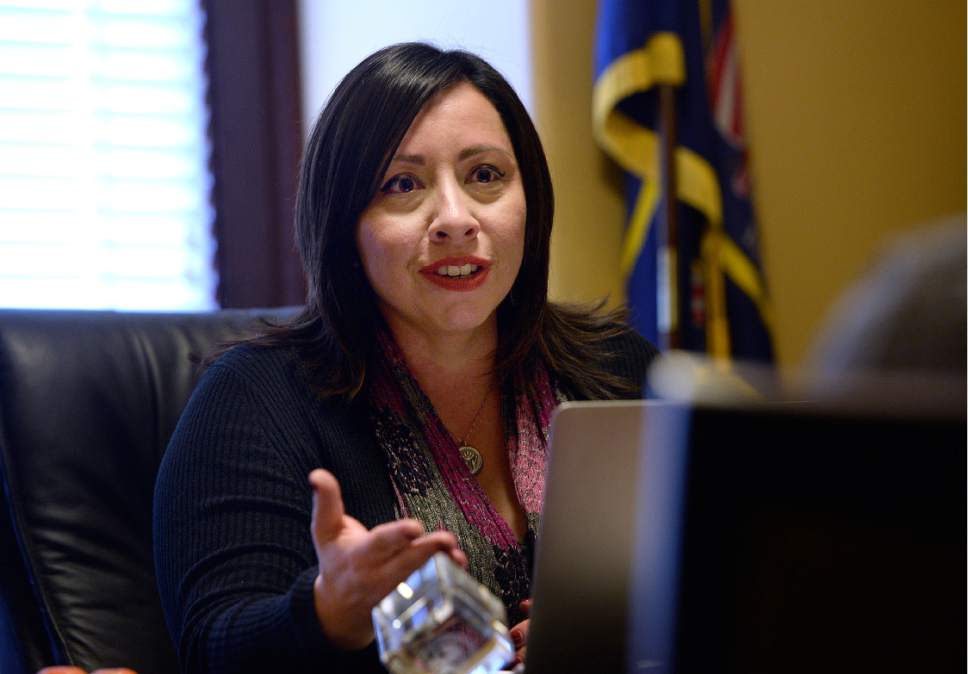This is an archived article that was published on sltrib.com in 2017, and information in the article may be outdated. It is provided only for personal research purposes and may not be reprinted.
By most crime metrics, Utah is a comparatively safe state, according to Brigham Young University associate professor Julie Valentine.
But the exception to that trend is sexual violence, Valentine said, for which Utah has one of the highest rates in the nation.
"We have a problem," she said. "All the numbers show that we have a problem."
A new bill, which was made public Wednesday, seeks to bolster the prevention and prosecution of rape by mandating the testing of evidence kits.
Under HB200, Utah's law enforcement agencies would have 30 days to submit rape kits to the Utah Crime Lab, with testing required by a to-be-determined deadline.
The bill also would create a tracking system for rape kits and trauma-sensitivity training for Utah law enforcement.
"Who could be against wanting to decrease the number or rapes in our state?" Valentine said. "To really benefit the physical and mental health of our state, we need to be testing these kits."
Utah faces a backlog of about 1,000 untested rape kits, according to the bill's sponsor Rep. Angela Romero, D-Salt Lake City.
Her proposal would not take effect until 2018, she said, and is projected to cost between $1 million and $3 million.
"We wanted to give the crime lab time because they're still processing backlogs," Romero said. "I don't think anyone is opposed to testing all the kits. I think cost has always been a concern."
West Jordan Police Chief Doug Diamond said the funding for the bill is critical. Without additional resources, he said, a mandate to submit all rape kits to the crime lab would exacerbate the pileup of untested evidence.
"My concern and reservation is, do we have enough funding to support getting them all tested in a timely manner?" Diamond said. "If we're tied up all on rape kits, there is a lot of other crimes out there besides rape."
Diamond said it's a good idea to submit evidence for DNA testing, which can help investigators and prosecutors link separate crimes together that involve the same perpetrator.
But the burden on the crime lab has led to some instances where tests are not completed for more than six months, or approaching a year. And that delay, he said, has resulted in cases where prosecutors were unable to move forward with charges.
"With that kind of timeline," Diamond said, "it makes it almost impossible to effectively enforce the law and get somebody convicted."
Romero was confident lawmakers could find funding for the bill because "it's the right thing to do."
She said the process of collecting evidence can be traumatic for many victims of sexual violence. But when that evidence sits untested in storage, she said, it erodes a victim's faith in the justice system.
"When we really want to tackle an issue, there are ways to find the resources for that," Romero said. "This isn't just an issue that impacts women, it impacts everyone."
She said her bill would allow policymakers to track the status of any untested kits, while also adding important information to the Combined DNA Index System, a federal database of DNA evidence.
In other states with mandatory rape kit testing, she said, prosecutors have used the DNA database to successfully link cases to repeat offenders.
"We're identifying rapists that are serial rapists," Romero said. "It's not just a one-time offense. They have violated multiple people."
bwood@sltrib.com Twitter: @bjaminwood



